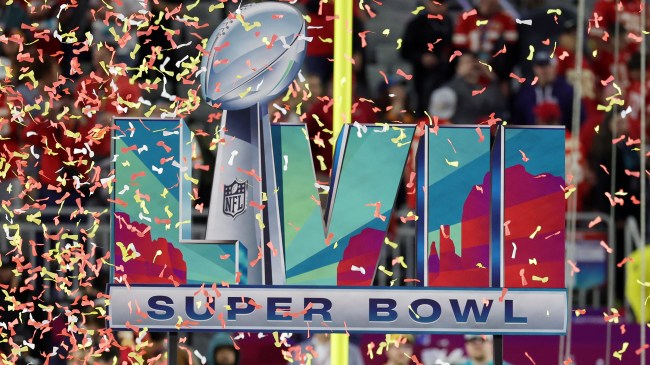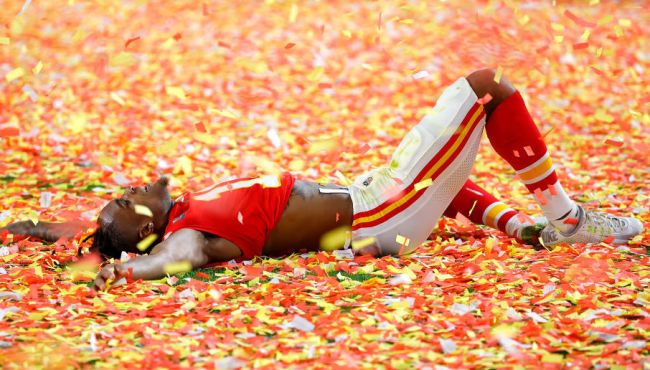
Getty Image
On Monday morning, millions of people across the United States woke up with a crippling hangover after devoting their Sunday night to eating an unhealthy amount of equally unhealthy food and washing it down with ample amounts of beer while watching the Eagles and the Chiefs face off in Super Bowl LVII.
If you count yourself among that group, there’s a very good chance you found yourself pondering one very pressing question once you reached a point where your brain had the ability to think things: why isn’t the day after the Super Bowl a holiday?
In recent years, there’s been a bigger push to give the people what they want—nay, deserve—as more Americans have thrown their support behind the idea; a petition that made the rounds earlier this year garnered more than 80,000 signatures in less than a week.
It’s pretty clear following up Super Bowl Sunday with Super Bowl Monday is one of the rare proposals people around the country would agree is a very good idea. Lawmakers in Tennessee recently introduced a bill that would make that dream a reality, but it would appear the powers that be in Washington, D.C. have more important things on their plate.
However, there is some good news. Congress may be dragging its feet, but there is a solid chance it’s only a matter of time until we live in a world where you no longer have to dread the absolutely brutal case of the Sunday Scaries that usually sets in around the same time the winning team hoists the Lombardi Trophy—and it wouldn’t even require the creation of a new holiday.
The Super Bowl could coincide with Presidents Day sooner rather than later

Getty Image
The first-ever Super Bowl was held on January 15, 1967. At the time, the NFL and AFL seasons each featured 14 regular season games and a single postseason showdown to determine which teams would represent each league in what was initially (and creatively) dubbed the “AFL-NFL World Championship.”
The Big Game remained a staple of mid-January (with the exception of Super Bowl X, which was held on January 18th, 1976) until the NFL expanded its schedule to 16 games prior to the 1978 season.
The second half of January became the norm for the remainder of the century, and it slowly but surely began to creep toward the end of the month until Super Bowl XXXVI became the first title game that was held in February (the 3rd, to be exact).
The Super Bowl made its grand return to January the following year, but that marked the final time the first month on the calendar was home to the contest.
The NFL put the final nail in that coffin when it expanded the regular season to 17 games ahead of the start of the 2021 campaign. When that decision was finalized, there was speculation that the league (and its owners) had already started to tinker with the idea of upping that number to 18, which could reportedly happen by the time 2025 rolls around.
If that ends up being the case, it could be a very significant development on the Super Bowl Monday front.
While there’s no way to know exactly how the NFL will handle things, it seems incredibly likely it will simply extend the season by another week as opposed to starting things earlier. If that ends up being the case, there will be no need for a new national holiday, as the Monday after the Super Bowl would theoretically fall on one that already exists: Presidents Day.
As Pro Football Talk points out, a shift to an 18-game season isn’t entirely necessary for fans to get a taste of that beautiful future. If the current format remains the norm in 2027, the Super Bowl will give the Valentine’s Day Industrial Complex a run for its money when it’s played on February 14th—a day before Presidents Day is scheduled to fall.
It’s hard to imagine Americans will be willing to remain stuck in the past once they get a taste of a government-sanctioned day off on the Monday after the Super Bowl, so if the NFL doesn’t switch things up before then, it seems very, very likely 2027 will be the point of no return.
RELATED: The Evolution Of Super Bowl Logos Proves It’s Time For The NFL To Overhaul Its Current Approach